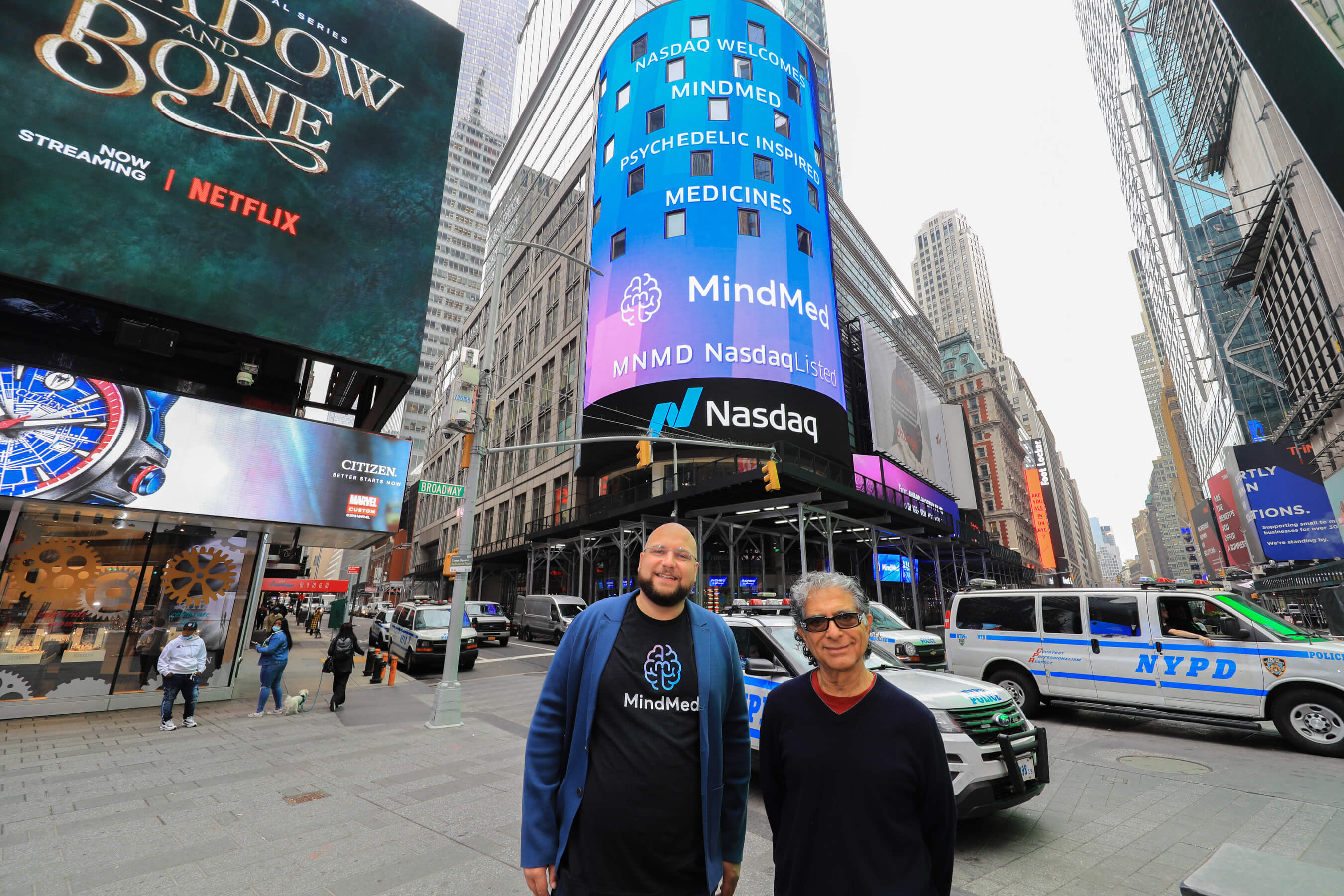
This week, MindMed (NASDAQ: MNMD) (NEO: MMED) (DE: MMQ) announced a partnership with self-help guru Deepak Chopra’s The Chopra Foundation, the first high-profile, celebrity-backed deal of its kind for a publicly traded psychedelics company.
Few fine details on the partnership have been released, though the company said in an 18 May press release that it has entered into a letter of intent with the foundation to ‘educate and build public awareness around the use of psychedelic medicines to treat mental illness, remove outdated stigmas, and ultimately research mental wellbeing approaches that can be used in psychedelic related psychotherapy’.
‘I am partnering with MindMed for the public education and the public awareness of the research on psychedelics,’ Chopra told CNBC following the announcement. ‘I don’t believe psychedelics are a panacea, but I think they have a big role… with PTSD, in mental distress depression, suicide prevention and much, much more.’
The release further states the two groups plan to design and conduct psychotherapy research, explore evidence-based digital therapeutics and measurement tech for therapists, as well as investigate the role psychedelics, the mind-body connection and the understanding of consciousness play in mental health/wellbeing.

Investors took to social media on Tuesday to speculate on the impact the partnership will have on MindMed share prices, which fell 3.11% on the Nasdaq in its Wednesday opening.
And while some praised the partnership as a boon to mainstream acceptance and MindMed’s profile, others opined the affiliation will damage MindMed’s scientific and academic credibility in the eyes of institutional investors.
The discussion begs the question: will celebrity endorsement become commonplace in psychedelics brand strategy, and how will high-powered affiliation impact investments?
The most recent and relevant example can be found in the cannabis industry.
Despite varying regulatory allowances (celebrity endorsements for cannabis are prohibited in Canada, though permitted in the US), publicly traded licensed producers on both sides of the border have drawn creative affiliations with celebs in recent years.
The most notable among them, Canopy Growth Corporation (NASDAQ: CGC), has struck deals with celebs including Seth Rogen, Martha Stewart, Snoop Dogg and, most recently, Drake.
News of the monolith producer’s partnership with the Toronto-based actor-rapper catapulted the stock 11.8% higher in the hours after the announcement.
Though the medical nature of psychedelics brands and the recreational nature of celeb-backed cannabis brands are wholly different in terms of market potential, supply chain and consumer groups, celebrity endorsement hasn’t garnered any significant long-term financial value for cannabis operators like Canopy Growth.
While the Chopra/MindMed deal is the first of its kind in psychedelics, some high-profile entertainers and athletes have begun to admit that they use the compounds for mental health treatment. Some, like former NBA star Lamar Odom and former NHL player Daniel Carcillo, have announced interests in the space.
And though the value of celebrity for investors is questionable at best, the public image of high-profile figures may come with unintended negative consequences. Dan Bilzerian, controversial actor/poker player/influencer and founder and chairman of cannabis lifestyle brand Ignite, reportedly cost the company millions in 2019 in promotional photoshoots, trips and parties. Bilzerian is widely regarded as a misogynist and a fraud, whose reputation further damaged the company.
Chopra too has been widely criticised, though in scientific and medical communities for his brand of so-called pseudoscience and for overstating the health benefits of meditation. Those criticisms may raise questions among investors about his ability to add legitimate value to MindMed.
As the profile of psychedelics continues to rise – and while no prohibitive regulations exist – high-profile endorsements are likely to follow suit. If lessons from cannabis are any indication how psychedelic endorsements may impact investments, operators will be wise to proceed with caution.


